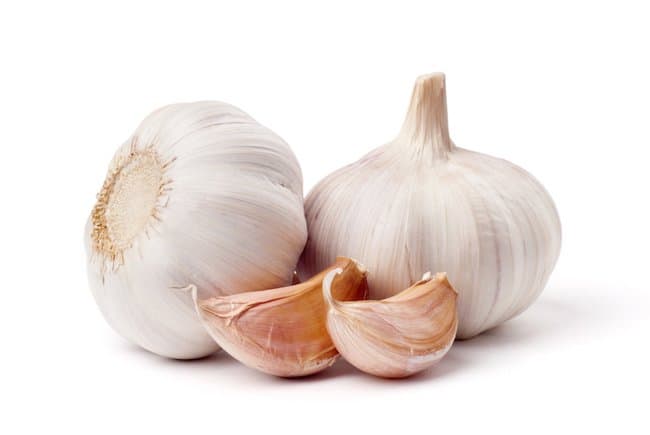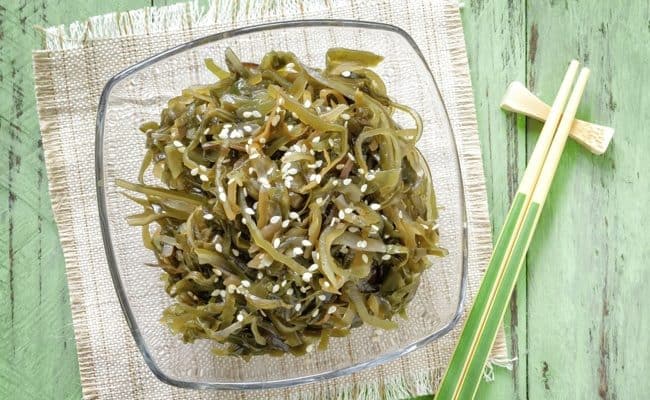
Garlic has been used for centuries for its proposed health benefits. Garlic can positively affect heart health, boost immune function, possibly protect against certain cancers, provide a source of antioxidants, may have digestive health benefits and health benefits during pregnancy.
Here is a closer look at health claims for garlic and research behind these claims.
Heart health
Garlic can help lower the risk of heart disease by lowering cholesterol build up in arteries. A 2006 study from The Journal of Nutrition suggests garlic can inhibit the formation of cholesterol in the body and decrease the oxidation of cholesterol.
Garlic can also improve heart health because it lowers the amount of homocysteine in the body. High levels of homocysteine can increase risk for heart and cardiovascular disease. Garlic can also help lower blood pressure.
A compound in garlic oil called diallyl trisulfide may help protect heart cells after a heart attack, according to research from Emory University School of Medicine. This same compound may help protect heart cells in people with diabetes from developing a fatal heart condition called cardiomyopathy.
More research studies in humans need to be done to determine the mechanism for this potential benefit.
Mental Health
The 2006 study from The Journal of Nutrition suggests, along with heart health, garlic can also help prevent the development of Alzheimer’s disease. High cholesterol levels can increase risk for development of a compound called β-amyloid which is seen in the development of Alzheimer’s.
Since garlic can inhibit the production of cholesterol, garlic can also help lower the production on β-amyloid which can lower risk for developing Alzheimer’s disease. Compounds in garlic may specifically protect brain neurons from dying and increase circulation to brain tissue.
Immune boost
Garlic is an old remedy for cold prevention that has been passed on through centuries. However, is there any merit to these claims? A compound in garlic called allicin may in fact help boost immune health to fight off coming down with the common cold.
Researchers in a publication from the American Physician support that use of garlic may help lower the risk of catching the common cold, but there is no evidence that taking garlic has any effect on duration of symptoms.
Antioxidant and fighting cancer
Garlic is a source of many phytochemicals and antioxidants that can help lower inflammation in the body. These antioxidants can also help protect cells from damage from free radicals and may help lower risk of developing cancer cells.
A Chinese research study concluded people who ate raw garlic twice a week could have over 40% lower risk of developing lung cancer compared to people who did not eat garlic.
Researchers collected data from over 1,000 cancer patients and over 4,500 healthy people from 2003-2010. For people who smoked, researchers suggest eating raw garlic may still have a protective effect against lung cancer, possibly up to 30% lowered risk.
Researchers from the Medical University of South Carolina suggest from their research that a sulfur containing compound in garlic can help kill a specific type of brain cancer. More research is needed to understand how garlic may help protect against cancer, but from current research it appears there is a positive relationship between garlic and lower risk for cancer.
Digestive health
Garlic has been shown to have a powerful antimicrobial effect in the body. Substances in garlic could protect against food borne illnesses and digestive illness from common bacteria from food. In particular, garlic may help fight off the common Campylobacter bacterium that is one of the most common causes of digestive illness.
Pregnancy benefits
A 2013 study from The Journal of Nutrition suggests that eating garlic and dried fruit during pregnancy could help lower risk for spontaneous pre-term delivery. Microbial infections can increase risk of pre-term delivery, and garlic can help fight off microbial infection therefore lowering risk for early pre term delivery.
Conclusion
Many research studies have concluded health benefits of garlic including heart health, mental health, digestive health, boosting immune strength, protecting against certain cancers and possibly lowering risk for pre-term delivery in pregnancy. More research is needed to determine how these health effects happen and how much and what type of garlic has the greatest advantage.
Garlic can help lower cholesterol production, lower blood pressure, protect cells from damage, possibly kill off certain cancer cells, help lower risk of dementia, protect against food borne illness bacteria and lower risk for microbial infection during pregnancy.
Be wary of taking garlic supplements if you are on medication; check with a physician before taking a garlic supplement or drastically changing your diet. Also keep in mind cancer is a multi-faceted disease and garlic supplements should not be used in place of medical treatments for cancer. Talk with your personal health care provider if you have any questions about garlic and your personal health conditions.
References used in this article










